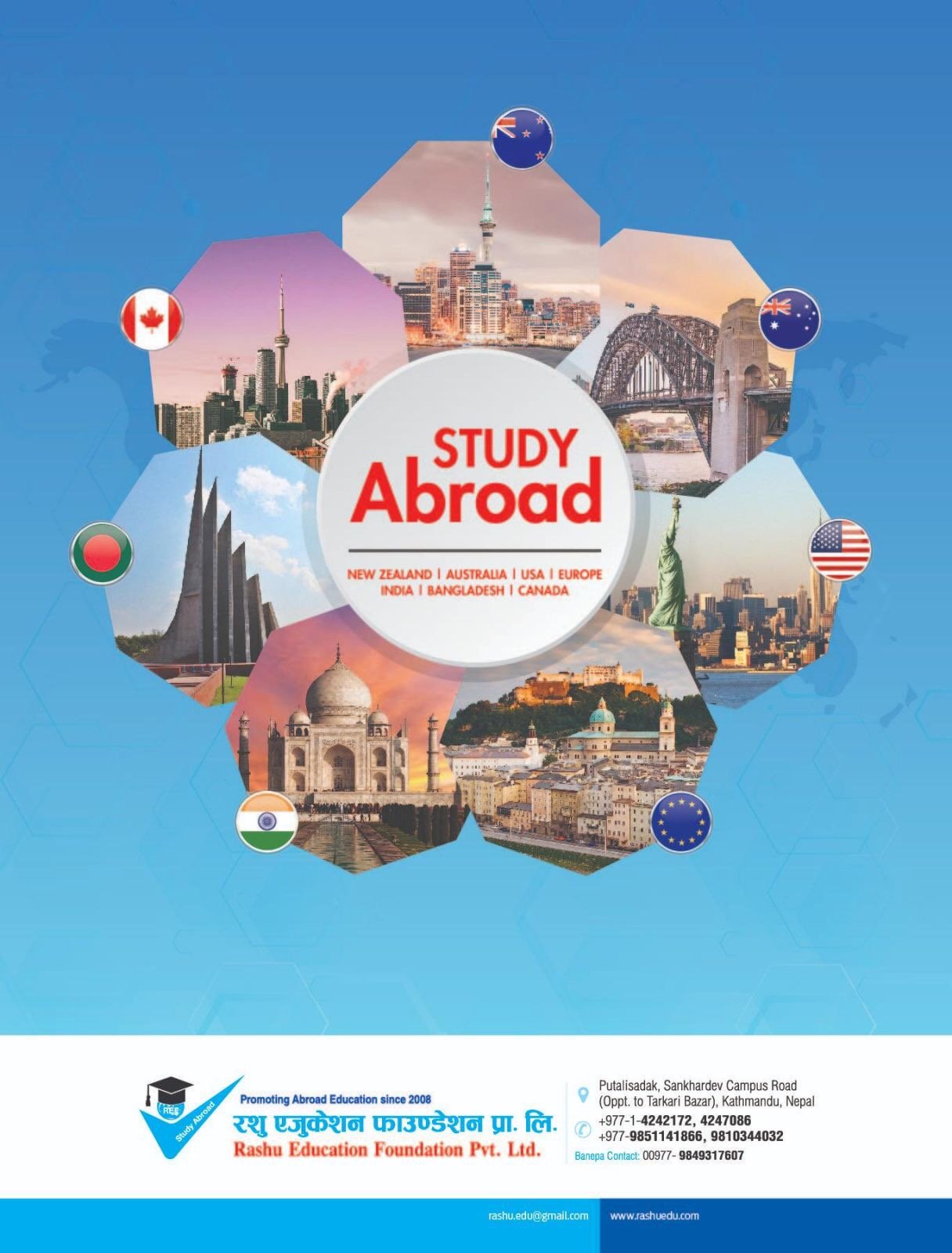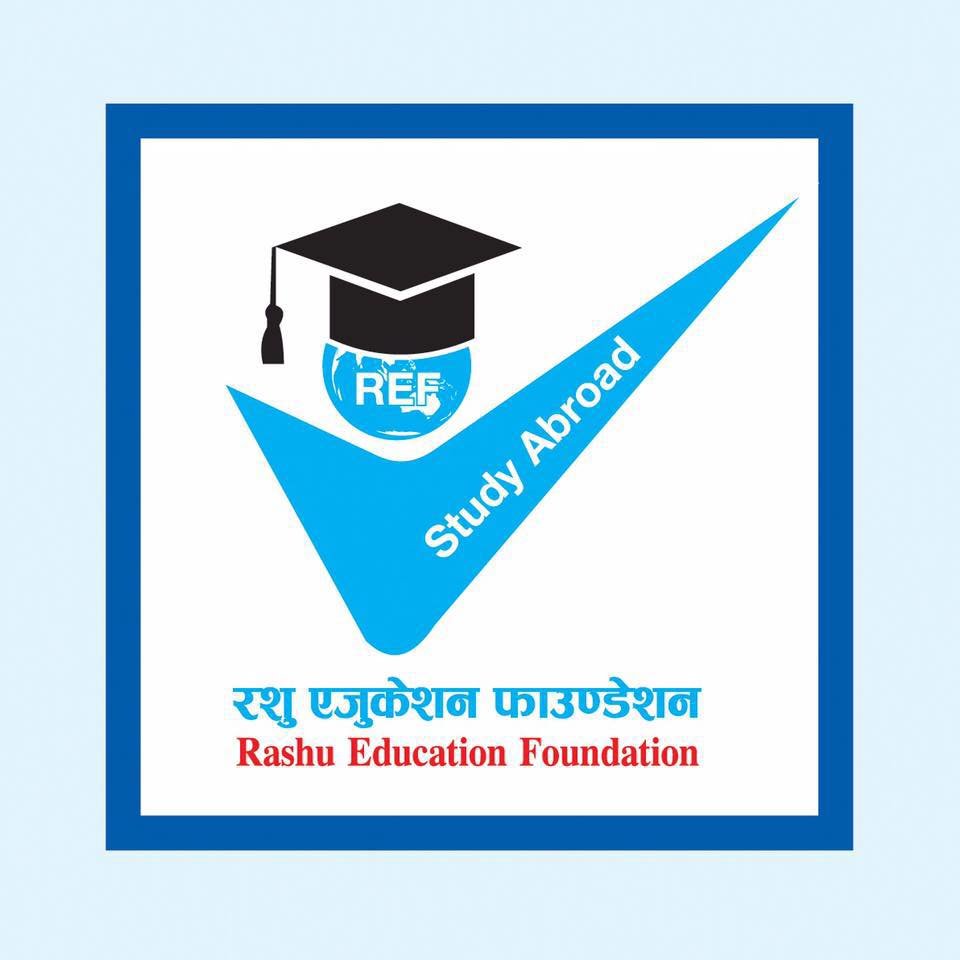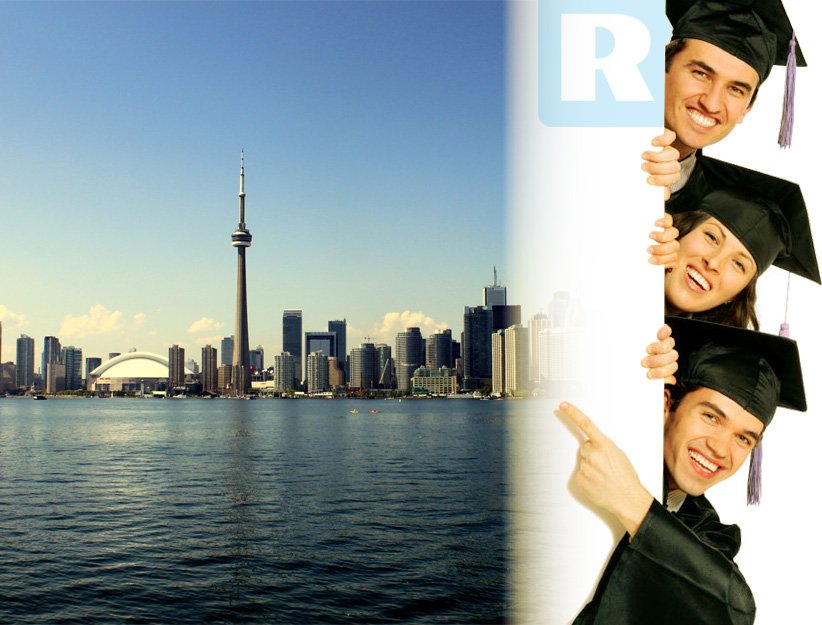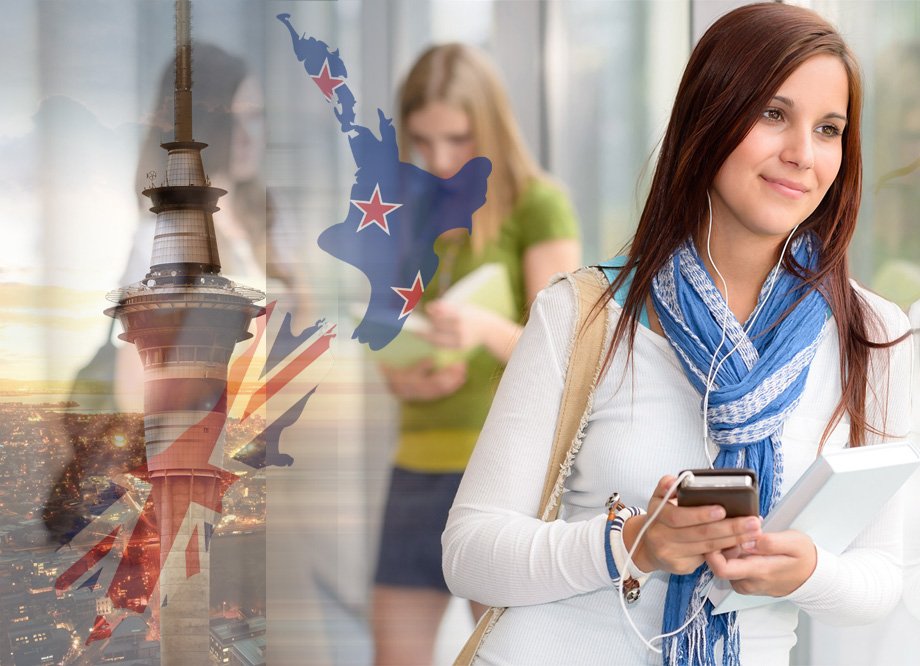

Rashu Education Foundation
Bagbazar, Adwit Marga, Kathmandu, Nepal. , Kathmandu, Kathmandu
Ramesh Thapa
Chief Executive Officer
Dear students and Parents,
I am very much happy to introduce your right counselling center for abroad education. The students who have been part of our journey are with us and lots of them have already reached their destined countries. We greatly pride ourselves in our student’s satisfaction. Currently, we are associated with some of the reputed institution in part of India and aboard, like Bangladesh, China, U.K, U.S, Australia, UK and many more.
- We believe in associating with quality educational trusts.
- We will not mislead parents & students.<... See More
Bagbazar, Adwit Marga, Kathmandu, Nepal. , Kathmandu
rashu.edu@gmail.com
+977 [01] 4247086 +977 [01] 4242172
About Us
We would like to introduce Rashu Education Foundation Pvt. Ltd to you. Within a short period of time the organization through perseverance and diligence has been able to make stand in the educational sector.
Facilitating the student and aspirants to identity appropriate course and institution which meet individual need has always been our main objectives .Through counseling, we enable our student to get to know about the diversified and future oriented opportunities they have in India. By organizing and conducting program such as seminar, student’s interaction program, parents meeting and other gathering for the betterment of their wards, we have been able to dwell in the heart of the parents too.
Currently, we are associated with some of the reputed institution in part of India and aboard, like Bangladesh, China, U.K, U.S, Australia, USA and many more.
Generally we wants to associate in the following courses i.e. B.Sc Nursing , M.Sc nursing , Pharmacy , BPT,MPT, B.Sc and M.Sc course ( Biotech, Microbiology, Biochemistry, etc), BBA,MBA,BBM,BA, B.E and ME Courses( civil ,mechanical , computer science ,IT , electronic ,communication ,electrical, etc.) , Dental ,PUC and other course provided by the college as per demand of the students. As far as possible, in order to give our 100% expertise to our students.
You can benefit a lot from our end to end overseas education services that start with you making the right choice for pursuing your education abroad and then follow Admissions, Test-Prep, Travel & Accommodation Assistance and Visa-Processing. REF is guaranteeing to assist the student's vision of international education, by procuring them admission in colleges and universities with global standards.

According to a survey conducted by the University Grants Commission on India education GDP and more, the higher education sector in India has witnessed a massive growth in the Growth Enrolment Ratio in the years 2009 and 2010. The increase has touched the 17.25% mark in comparison to 12.5%, the growth rate in 2008 to 2009. For students willing to apply for loans for higher study, the nationalized and private banks in India offer education loans for studies in India and abroad at affordable terms and conditions. In order to promote "India education women" better terms and interest rates are offered to female students.
India ranks third in the world in terms of Higher education after China and the US. India hosts around 16,000 colleges around the country along with 100 deemed universities, around 20 central universities and 215 state universities in the country.
Career & Courses available in India
- + Medical
- + Engineering
- + Law
- + Science and Technologies
- + IT/ Computer Science
- + Management
- + Mass communication
- + Teaching
- + Commerce and accounting
- + Fashion Industry
- + Aviation
- + Other miscellaneous professions
List of some best university & College of india
- JNTU – Jawaharlal Nehru Technological University – Hyderabad
- AU – Anna University – Chennai
- BU – Bangalore University – Bangalore
- VTU – Visvesvaraya Technological University
- BHU – Banaras Hindu University
- University of pune
- Amity University
- Sikkim Manipal University
- Panjab University – Panjab Technological University
- SRM University
- Lovely Professional University
- Acharya Nagarjuna University – Vujayawada
- Rajiv Gandhi University of Health Science
- K.L.E. University
- Alliance University – Bangalore
- Sharda University – Noida
- Christ University – Bangalore
- Jain University
- Osmania University – Hyderabad
- Utkal University – Orissa
- Kurukshetra University – Haryana
And many more university and college of student choices.

Bangladesh is the top study destination for Nepalese medical students due to its high patient flow in college hospitals.In Bangladesh, the medical education in the graduate level is provided by Medical Colleges. The colleges are under the jurisdiction of the Ministry of Health, and are affiliated with a university on the respective region.Until the early 1990s, all the medical colleges were established by the government. Since then, several private medical colleges have been set up.Study Medical in Bangladesh at the top medical college for MBBS.
Low fees MBBS admission in Bangladesh including Government Medical College and Private Medical Colleges.MBBS Colleges in Banlgadesh are approved by MCI Act 1956.
MCI Recognized Medical Qualifications granted by Medical institutions outside INDIA. Many Nepali students go to Bangladesh for higher education every year. According to the Embassy, around 7,000 Nepali students are currently enrolled in different universities for various courses in Bangladesh.
“Many Nepali students choose to go to Bangladesh as the universities there are very good. The lecturers and professors are friendly, so students won’t have much problems adjusting in the college environment,”.It is easier to get enrolled in private colleges than in government ones, as a lot of documentation is required to apply in government colleges.Acquiring student visa to Bangladesh is quite simple, too. Documents like formal proposal from the educational institution the students want to study in, bank solvency-related information and the academic results should be presented at the Embassy to apply for the visa.
Also, the northern part of Bangladesh is nearer to Nepal, which is why many students from eastern Nepal go to study in the colleges in that area. This way, they need not stay far away from home to aspire good education, and can visit their families on holidays on a frequent basis.Another reason why Nepali students choose Bangladesh for higher studies is the foreign exposure.
So, Are you ready to experience the best study experience in Bangladesh?

China is the world's most populous country with more than 1.3 billion people—20 percent of the Earth's population. Occupying most of East Asia, it is the fourth largest country in area (after Russia, Canada, and the U.S.). China's geography is highly diverse, with hills, plains, and river deltas in the east and deserts, high plateaus, and mountains in the west. Climate is equally varied, ranging from tropical in the south (Hainan) to subarctic in northeastern China (Manchuria).
China's geography causes an uneven population distribution; 94 percent live in the eastern third of the country. Shandong province, with its mild coastal climate, has more than 90 million people, but Tibet, with its harsh mountain plateau climate, has less than 3 million. The coastal regions are the most economically developed—acting as a magnet for an estimated 150 million Chinese migrants from the poor rural interior. This figure, from 2008, grows by an estimated 10 million Chinese each year.
China has perhaps the world's longest continuous civilization; for more than 40 centuries its people created a culture with strong philosophies, traditions, and values. The start of the Han dynasty 2,200 years ago marked the rise of military power that created an empire—one that provided a golden age in art, politics, and technology. Ethnic Chinese still refer to themselves as the "People of Han," and Han Chinese constitute 92 percent of the country's population.

Australia is rapidly becoming a popular study destination among students around the world. Most students go to Australia to study in a vocational education and training system at university level. The most popular fields of study are business and management, information technology, engineering, and tourism & hospitality. Students these days are increasingly studying in a wide range of disciplines at Australian institutions.
Australia is a safe, multicultural and internationally recognized environment for further education, innovative research, intensive culture and international rapport has made Australia a leading provider of top quality education to international students from all over the world.
- Internationally recognised, world class education
- Thousands of stimulating study programs
- Well qualified staff.
- excellent international student support services
- Safe, friendly and politically stable country that welcomes international students
- Part time work permitted for international students
- Very high standard of living at an affordable cost
- Lower fees than most western countries
- Multicultural society
- Quality Libraries
- Technologically current computer laboratories
Education System of Australia
Australia’s system of education is of the highest standard and enjoys international renown. Our schools develop students’ skills and confidence; Australian university graduates excel at the cutting edge of research and innovation; and vocational and technical education drives our thriving industrial sector. Australia is widely recognised as a world leader in the field of international education and English language training.
After completing final year (Year-12) of secondary school, students head for their higher (Tertiary) education that awards degree for Bachelors, Masters and Doctoral studies. Mostly students from overseas come for education at this level. Tertiary education in Australia is administered by the Australian Qualification Framework (AQF), which aspires to integrate both vocational and higher education into a solitary classification of tertiary education.
For undergraduate degree, one can either enroll for a two-year Associate degree like Associate of Science (A.S.) or a four-year degree like Bachelor of Science (B.S.).
Achieving a Bachelor’s Degree takes 3 to 4 years. To complete a Masters Degree it takes 1 to 2 years. The Masters Degree follows after the Bachelors degree. It deals with a more advanced subject than a Bachelors degree and either includes research, coursework, or a mixture of the two. After having completed the Masters Degree, one is qualified for taking a PhD program.
Not only universities form the major part of the higher tertiary education, but also the “Technical and Further Education colleges in Australia” (TAFES) are accredited as higher education institutions. They provide a wide range of courses includes subjects such as hospitality, tourism, construction etc. The TAFEs accredit Certificate, Diploma and Associated Degrees after having completed 1 to 2 years. Afterwards, the students are eligible to obtain further qualifications at the level of university.
Student Visa Process
Process to obtain Australian Student Visa for international students. Any person who intends to undertake full-time study in a registered course in Australia needs to obtain a Australian Student Visa. A Student Visa permits the holder to travel to, enter and remain in Australia for the duration of the registered course of study. Overseas students cannot undertake part-time study in Australia and must leave Australia on completion of their course of study.
Documentation to submit with your application :
- Four recent passport-style photographs for each applicant.
- Completed 'details of relatives' form.
- IELTS test results.
- Changes to the student visa regulations require varying evidence of funds dependent on the subclass of student visa applied for. Applicants should show funds and (income that support these funds) enough to cover, course fee, and living costs in Australia (AUD 12,000 pa) as well as amounts covering other family members. For details relating to the specific financial evidentiary requirements for each subclass www.immi.gov.au
- All original education documents including all mark sheets for Degrees.
- Affidavit of support from the person providing financial support.
- For applicants below 18 years of age, details of arranged guardianship in Australia plus an affidavit from the student's parents agreeing to the guardianship arrangement.
- Education loan (HECS) or Bank statement from the person(s) providing support outlining transactions for the past 6 months.
Processing Times
Student applicants should lodge applications no more than 3 months and at least 4 weeks before course commencement dates. Some applications take longer to process. Students may be asked to undertake further medicals and some delays may be experienced due to the need to verify bank or education documents. Nepalese applicants need to take into account the time taken for documents and letters to be sent and received by the Visa Office.

Full Name:- United States of America
Motto:- In God We Trust
National Anthem:- "The Star-Spangled Banner"
Primary Languages:- English
Capital City:- Washington DC
USA hosts more international students than any country in the world. World class learning institutions, endless study choices, worldwide recognition are some of the features that attract international students to USA. One of the best things about studying in the USA is the vast number of academic options offered to students. Even more important is the quality of these academic bodies. Most American college and universities offer top-notch education programs with highly qualified teaching staffs. These institutions are focusing on global aspects of each subjects better preparing students with a worldwide view of their field. Students no longer merely focus on certain geographic areas when obtaining their academic training.
American people are friendly, cooperative, generous, kind and accepting of foreigners, if we forget some exceptions. The country itself if multicultural as it is said to be a melting pot. International students find this country to best place for their study. For any international student, the U.S.A. has a lot to offer: the most prestigious, top ranked education anywhere in the world, eclectic cities and beautiful natural parks, artistic, cultural, political and athletic events, and a very multicultural population.
Why study in USA
For any international student, the U.S.A. has a lot to offer: the most prestigious, top ranked education anywhere in the world, eclectic cities and beautiful natural parks, artistic, cultural, political and athletic events, and a very multicultural population.
Diversity: The land and people of the U.S.A. are incredibly varied. Wherever you choose to study, you will encounter a regional culture rich in history, local traditions and customs. The U.S.A. is a multi-racial society that is still absorbing new immigrants, which makes it a very dynamic and exciting place to experience. While students must exercise caution in a few locations, in much of the U.S.A., streets and university campuses are clean and safe.
Differences: You may be surprised at your professors’ willingness to challenge authority. Academic freedom is one of the hallmarks of a U.S. university. You will notice different perspectives on instruction. In the U.S.A., students are trained to observe and analyze a problem, then solve it. You will be expected to listen to your classmates and challenge their points of view. The goal is pragmatic, so that you will gain confidence and the ability to organize and present an argument.
Most U.S. university students live on or near the school campus. When you are studying in the U.S.A., you will have many opportunities to join planned and informal activities with other students, such as hiking, skiing, museum visits, excursions to new cities, and U.S.A. tourist attractions. Imagine visiting New York and taking a ferry to the Statue of Liberty!
The Leading Edge: While studying in the U.S.A., you will be exposed to some of the most up-to-date developments in technology. The U.S.A. is the leader in many areas of technology.
Semesters
US universities offer two main semester intakes.
Fall Semester (September/October)
This is the main intake and almost all programs are offered at this times. More financial aid is also available for this semester and as funds are allocated for the entire year during this time.
Spring Semester (January/February)
This is the mid-year intake. There is limited financial assistance available for this semester as most universities allocate funds to projects in the Fall semester.
Some universities also have a Summer intake around July.
Undergraduate Admissions
Eligibility
Admission to a College or University in US requires a completion of twelve years of elementary and secondary education. In context of the more countries, this implies qualifying in class 12th examination or junior college as applicable. .
Students can either pursue a two-year Associate degree like Associate of Science (A.S.) or a four-year degree like Bachelor of Science (B.S.).
- English Proficiency Test
For most Universities students must demonstrate English language competency by providing a (iBT) score of 75 or IELTS score of 6.00 and above
Other Require Tests
- SAT Reasoning Test:: This is required for almost all Courses and Universities.
- SAT Subject Test: A few Universities may require students to take two or three subject tests.
- ACT: A few Universities may also require students to take this test.
Application Requirements
- Complete an application for undergraduate studies.
- Statement of Purpose (SOP) outlining the reasons for choosing a particular course, previous education and experience for the chosen course, students personal interests and career goals.
- Pay the application fee (non-refundable) Application fee can be paid by credit card, bank wire, or by sending an international check.
- Submit a signed copy of the Statement of Financial Sponsorship and original or certified copy of a bank statement showing that student (or the sponsor) have an account which holds sufficient funds to cover the total estimated costs for your first academic year of study.
- TOEFL score report and also report the score via ETS or IELTS score report
- SAT score report and report the score directly via ETS and/or ACT score
- Certified copies of 10+2 completion certificates including subject descriptions
- Two letters of recommendation
- Clear copy of students passport information page with complete name, date of birth, passport number and issue & expiry date
A few universities may take students interview to know them better. The interview could be with a college representative or "third party" representatives, staff, faculty or alumni of the college or simply a telephonic interview. These interviews are usually informal and more of an opportunity to exchange information. The interviewer will try to judge student’s abilities and interests.
It is important to submit the application, application fee, and supporting credentials early because many undergraduate departments begin making decisions 4 to 6 months before the term begins
MBA in USA
are recognised all over the world and US has some of the best business schools.. Pursuing MBA in USA is one of the best career moves that any student can take. MBA aspirants from all over the world seek admissions to the B-Schools in the United States. Having a MBA degree from any of the reputed B-Schools in USA opens up a plethora of lucrative career opportunities. The US business schools fall under two broad categories- public (state supported), and private (autonomous) institutions.
The tuition fee for MBA program varies according to the different universities in US. Students can opt for either a state supported or a private B-School in US All MBA programs are usually 2-year full-time courses though some of them offer fast track programs of lesser duration.
The executive MBA programs are of varying duration. MBA aspirants have a liberty to choose from a wide range of specialisations offered by management colleges. Some options are:
- Marketing
- Finance
- IT and Systems
- Human Resources
- International Business
- Marketing and Operations
- Insurance & Risk Management
- Hospitality and Tourism
- Rural Management
- Agri- Business
- Entrepreneurial Management
- Real Estate

Capital: Ottawa
Population: 32,207,113
Area: 9,970,610 sq km
Language: English, French
Religion: Roman Catholic, Anglican
Continent: North America
More than 90,000 students come to study in Canada every year and even more come to Canada to learn English or French. Foreign students bring a rich culture to our classrooms. Your knowledge and skills are welcome in our schools. In Canada, the provinces and territories have jurisdiction over education. For more detailed information on living and studying in a specific province or territory, contact the school where you wish to study.
Why Study in Canada?
A United Nations survey has found Canada to be the best place in the world to live. This assessment was based upon Canada's achievements in terms of educational attainment, life expectancy, national income and general quality of life. Conducted every year, the survey evaluates quality of life in 174 countries, using over 200 performance indicators. Canada earned particularly high marks for its access to education, high life expectancy (due to universal health care system); and low crime and violence rates. Canada's prime cities Vancouver, Toronto and Montreal have been recognized as world class cities to live and work, for cleanliness, safety, cultural activities and attractive lifestyles.
Canada's education system is excellent and ranks among the best in the world. Moreover Canadian tuition fees are among the lowest in English-speaking countries.
- High standard educational institutions around the world
- Tuition fees for international students in Canada are much lower than comparable countries.
- Canada spends more per capita on education than any other country in the Organization for Economic Co-operation and Development (OECD)
- International educational experience since 100,000 international students come from all parts of the world annually in Canada
- Renowned all over the world for its tradition of hospitality and tolerance.
- A remarkable multicultural society
- Canada is a world leader in software development, telecommunications, aerospace, engineering, urban transport, biotechnology, mining technology and environmental industries.
- Canada offers a wide choice of over 90 universities and 150 colleges and technical institutes, featuring virtually every program imaginable.
- Remarkably low cost of living
Canadian Education System
Education in Canada is under the complete jurisdiction of the provinces and territories (States) and as such, there is no Federal (Central) education system in Canada. In keeping with the national commitment to education, public education in Canada is free up to and including secondary school (12th Std), in all the provinces. At the post-secondary level, institutions are divided into community colleges and universities. A significant number of university graduates attend college upon completion of their degree in order to acquire vocational skills for employment.
Types of Certification
- Certificate : Is a qualification awarded upon successful completion of a programme which is usually one year in length.
- Diploma : Is a qualification awarded on the basis of one or two year's of successful study.
- Bachelors Degrees : Are awarded by Universities/ University Colleges/ Community Colleges after four years of full-time study and lead to graduate level studies.
- Post Graduate Diplomas / Certificates : It lead to a Masters Degree. These programs have work terms which provide full-time opportunities to gain practical experience along with theoretical studies. A typical co-op term lasts 12 to 17 weeks. The prerequisites to participate in these programs is a Bachelors Degree of 3 or 4 years duration.
- Masters Degree : Is an option for Bachelors Degree. Graduates who have an interest in further learning and research, and for those who want to broaden their career possibilities. It is for 2 yrs duration and can be pursued after a 4 yrs Bachelors or a 3yrs Bachelors & a 1year Post Graduate Diploma from Canada.
- Doctorate or PhD : Is a degree ranking above the Masters Degree and generally requires four to seven years to complete.
Earning While Studying in Canada
Full-time students registered in a degree or diploma-granting course are allowed to work on the campus of the institution at which they are registered without the need for an employment authorization. This includes on-campus employment for graduate, teaching or research assistants. Spouses of full-time students are eligible for open or open/restricted employment authorizations, depending on medical requirements having been met. Students whose intended employment forms an integral part of their course of study such as undergraduate co-op programs, some programs offered by career colleges or language schools and some high school programs.

Capital: Wellington
Population: 4,430,400
Area: 268,021 km2
Language: English,Maori, Sign Language
Currency: New Zealand dollar(NZD)
Country Dialing Code: +64
New Zealand is one of the first places in the world to see the new day GMT/UTC +12. Daylight saving time: +1hr, begins last Sunday in September; ends first Sunday in April.
New Zealand is a unique country. Its scenery sets it apart from the rest of the world, while its people have areputation for friendliness, strength, and independence. There is abundant beauty and diversity in scenery, lifestyle, and culture. New Zealand offers a sample of every possible landscape within a relatively small country. Rolling green farmlands, barren volcanic desert areas, golden beaches with clear blue water, dramatic fiords, and majestic snow covered mountains all combine to form one of the most beautiful countries on Earth.
Study in New Zealand
The tertiary education system in New Zealand is made up of universities and several other types of providers, such as, institutes of technology and polytechnics and private training establishments. There are a total of eight universities in New Zealand all of which are owned by the government. The complete list of New Zealand universities is as follows:
- 1. University of Auckland
- 2. University of Waikato
- 3. Victoria University of Wellington
- 4. Massey University
- 5. University of Canterbury
- 6. Lincoln University
- 7. Auckland University of Technology
- 8. University of Otago
All New Zealand universities offer a broad range of subject in Arts, Commerce and Science. Each has developed its own specialist subjects such as Medicine, Engineering, Veterinary Science, Computer Studies, Agriculture and Environmental Studies.
The New Zealanders are easy going, spontaneous, open people. In this multi-cultural country, you'll find friends quickly and feel comfortable as well as secured.
While living and studying in New Zealand, you can afford great, modern, accommodation that is few minutes away from world-class study facilities. Public transport systems are good and cars are affordable. You can enjoy the freshest food of all types, cool cafes, markets, quality boutique shopping, theatres and art galleries.
As an international student in New Zealand you'll enjoy a varied lifestyle and a safe, friendly environment while you study. The local people are renowned for their hospitality and the warm Kiwi welcome extends to everyone.
Application Process
-
Fully completed Student Visa/Permit application form
-
A valid passport
-
Application fee
-
A recent passport-sized photograph
-
An acceptance letter of a place at an educational provider (eg: a university) in New Zealand
-
Receipt showing payment of course fee (if your student visa application has been approved in principle)
-
Evidence of sufficient funds for maintenance, via letter/bank statement or the Financial Undertaking form
-
Evidence of sufficient funds to purchase an outward ticket.
Exam
You will need to take the International English Language Testing System (IELTS) for getting an admission to any New Zealand institution. The school may also have additional tests for graduate students who are prospective teaching assistants.
This test is accepted in New Zealand: IELTS
Accommodation
Most universities and Best College in NZ can assist students for finding accommodation on or near to their campus. Here is a list of most common options:
- 1. Student Hostels : These are usually located on the campus or nearby, with single or twin rooms. Bed linen and cleaning facilities are provided. Meals are eaten in a communal dining hall, with special dietary needs catered to. A warden lives on site, and social and cultural activities are organised for residents. Hostels usually have computer laboratories and recreation rooms. Some institutions provide "self-catering" hostels where 6-8 students have their own bedrooms and share a kitchen and living room.
- 2. Home stay/Private Board : This is a room of your own in a suburban house, usually with a garden and lawns. Your host family provides meals. Interacting with your host family and meeting their neighbours and friends is an excellent way to improve your English. The host family helps you make phone calls, read bus timetables, find a doctor and so on. But home stay is not like living in a hotel. Some "give and take" is expected, as you become part of the family.
- 3. Going "flatting" : This term means renting a house or flat (apartment) singly or with other people. Choose your own flatmates of the same or opposite sex with mixed accommodation, ranging from a two-bedroom apartment to a large house on its own land. Most rental properties are unfurnished, other than an oven, a laundry facility, curtains and carpet. The landlord does not have to provide heating. You pay for electricity, gas, telephone and water, including connection charges. A "bond" of up to four weeks' rent is held by Tenancy Services and refunded when you move out, if the flat is still in good condition. Tenancy Services, a division of the Ministry of Housing has information about dispute resolution procedures and your rights and obligations. For more information on housing options and arrangements, contact one of our counsellors today.
Working in New Zealand
International students who have graduated from a course that would gain points under Skilled Migrant Category are eligible for a 1 year job search permit.
Once Graduates have gained work this way, they can go on to apply for either a post-study2 year work permit or, proceed directly to apply for residency under the Skilled Migrant Category. Students are eligible to work up to 20 hours a week. Anyone undertaking a course of 12 months or more are able to apply to work full-time over the summer holidays.
Partners of students studying in areas of absolute skill shortage and partners of all postgraduate students are able to apply for an open work permit valid for the duration of the student's course of study.

Population: 60,068,000
Capital: London; 7,615,000
Area: 242,910 square kilometers (93,788 square miles)
Language: English, Welsh, Scottish form of Gaelic
Religion: Anglican, Roman Catholic, other Protestant, Muslim
Currency: British pound
Life Expectancy: 78
GDP per Capita: U.S. $25,500
Literacy Percent: 99
United Kingdom qualifications are recognized and respected throughout the world. Your UK qualification will be a solid foundation for building your future, boosting your career and prospects for a higher salary. UK universities, colleges and schools will provide a vibrant, creative and challenging environment in which to develop your potential. Quality standards for UK institutions are among the best in the world. Universities, colleges and schools continually have to prove that their courses meet strict criteria. Many other countries are now trying to follow the example of the UK.
Increasing numbers of international students, from over 180 different countries, are choosing to study towards a higher education course in the UK. UK universities are monitored closely to ensure that they uphold the high standards of teaching, learning and research set by the government. The Quality Assurance Agency for Higher Education (QAA) is the key body charged with maintaining these standards. See the Quality Assurance Agency website for more details. UK universities and colleges offer a wide range of higher education courses. Whatever your career goals or interests might be, there’s sure to be a higher education course for you. The University and Colleges Admissions Service (UCAS) maintain a comprehensive database of undergraduate courses. See the UCAS website for more details. The UK is full of diverse cultures and people and this is what attracts many students to come here from other countries. From cosmopolitan cities buzzing with life to smaller towns and villages, the UK is a place of contrasts – a place where historical buildings mix with the latest contemporary architecture. Another thing to consider is that by coming to the UK to study you are likely to develop good language skills. English is arguably the most important language in today global business world. By immersing yourself in UK life, you will be developing and honing you language skills each day, chatting to friends, in seminars and lectures and out and about. Most UK universities offer language support to international students too.
Uk Life style
The UK is a multicultural society and attracts students from all over the world. You’ll feel more at home than you can imagine.
Warmly Welcomed
When you get to the UK, you will find a network of support and advice services designed to smooth your integration. Counseling, academic support, social facilities and specialized advising systems are there to assist you with settling and getting the best of your experience
Financial Benefits
Both undergraduate and postgraduate courses are generally shorter in the UK than in other countries, which can dramatically cut the cost of tuition fees and living expenses. Most undergraduate and postgraduate courses in the UK last three years, although some are longer.
International students are allowed to work up to 20 hours per week while studying in the UK. (If you are coming to the UK as a student for six months or less, you must specifically ask the Entry Clearance Officer for permission to work.)
As well as being a good way to fund your studies, working in the UK will also be a great opportunity to polish up language skills and get some vital work experience.
Worldwide Recognition
Academically, the UK leads the world. Some of the oldest and best universities and schools are located in the UK. These include world renowned institutions such as The University of Edinburgh, University of Bath, City University, Northumbria, the University of Glasgow, University of Sheffield, University of Southampton, Brunel University, University of Aberdeen, Essex University, the University of Northampton, the University of Strathclyde, but the tradition carries through to many of the universities and colleges throughout the UK. When looking for work in the future, this can be a great selling point in your favor!
Global Market Skill
British education will provide you with the necessary analytical and creative thinking skills you need for a better positioning in the job market. It will help you forge your professional personality and get better chances in the working world.
Scholarships/ Loans
Financing an international education is always difficult. The best approach includes lots of preparation, careful analysis of your budget, and hard work in researching and applying for scholarships. There are a variety of scholarships and loans available to students who wish to study in the UK
Why study in UK
Increasing numbers of international students, from over 180 different countries, are choosing to study towards a higher education course in the UK. Some of the reasons students choose to study here are listed below
- Good International Reputation
The quality of UK education is recognized all over the world by employers, universities and governments, making it a popular destination for international students. UK higher education is well-respected for the standard of its research and teaching.
- Good Quality of Education
UK universities are monitored closely to ensure that they uphold the high standards of teaching, learning and research set by the government. The Quality Assurance Agency for Higher Education (QAA) is the key body charged with maintaining these standards. See the Quality Assurance Agency website for more details.
- Wide Range of Courses
UK universities and colleges offer a wide range of higher education courses. Whatever your career goals or interests might be, there’s sure to be a higher education course for you. The University and Colleges Admissions Service (UCAS) maintains a comprehensive database of undergraduate courses. See the UCAS website for more details.
- An pnteresting place to live
The UK is full of diverse cultures and people and this is what attracts many students to come here from other countries from cosmopolitan cities buzzing with life to smaller towns and villages, the UK is a place of contrasts – a place where historical buildings mix with the latest contemporary architecture.
- Another thing to consider is that by coming to the UK to study you are likely to develop good language skills.
English is arguably the most important language in today’s global business world. By immersing yourself in UK life, you will be developing and honing you language skills each day, chatting to friends, in seminars and lectures and out and about. Most UK universities offer language support to international students too.
- University Search
- Application for admissions
- Scholarship assistance
- Test classes & registration
- Visa supporting documentation
- Visa interview tips
- Travel arrangements
- Airport Pick-up & Accommodation
- 1. Guidi ng our students to the best Universities/Colleges in the best environment which will give.(100% satisfaction to our students and valued parents.)
- 2. R egular monitoring to our students from Nepali management and arranging Parents meeting.
- 3. Guiding Students to the reputed Universities/Colleges of India.
- 4. Proper counseling from experience counselor.
- 5. Scholarship up to 100% to the genuine and needed students.
- 6. Providing Nepali mess with Nepali menu to Nepalese students according to their necessity.
- 7. Dropped and pickup facility on every Dashain and Tihar vacation.
- 8. Presenting true and fact situation to our Parents and students.
- 1. University, application Guidance.
- 2. Scholarship for genuine students.
- 3. I-20 from reputed colleges and universities.
- 4. Visa documentation Assistance.
- 5. Visa application Guidance.
- 6. Visa interview preparation Class.









